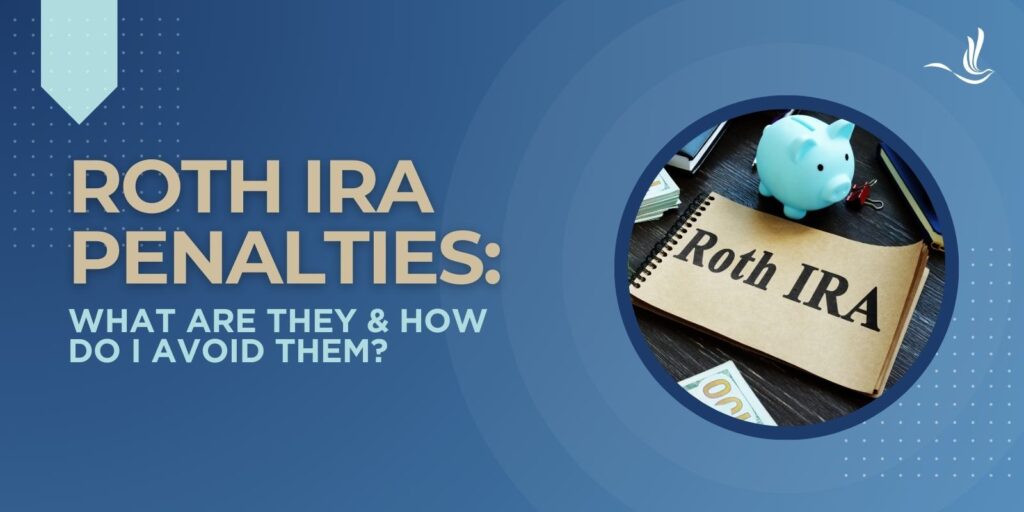Roth Individual Retirement Accounts (IRAs) are popular investment vehicles that offer tax advantages for retirement savings. However, it’s crucial for account holders to be aware of Roth IRA penalties to make informed financial decisions. This article will explore the various penalties associated with Roth IRAs, helping readers navigate the potential issues and optimize their retirement planning.
What is a Roth IRA?
A Roth IRA is a type of retirement savings account that allows your money to grow tax-free. Unlike a traditional IRA, where contributions may be tax-deductible but withdrawals in retirement are taxed, a Roth IRA operates differently. In retirement, you can withdraw your contributions and any earnings completely tax-free if you meet certain conditions. For example, you must be at least 59½ years old and have held the account for at least five years.
The Five-Year Rule Explained
The five-year rule applies to two situations: withdrawals of earnings and conversions. Understanding this rule helps you avoid premature distributions that could trigger taxes and penalties.
- Withdrawals of Earnings: For your earnings to be withdrawn tax-free, your Roth IRA must be at least five years old. This five-year period begins on January 1 of the year you made your first contribution.
- Conversions: Each Roth IRA conversion has its own five-year waiting period. If you convert a traditional IRA to a Roth IRA, you must wait five years to access that converted amount penalty-free, regardless of your age.
Understanding the Key Roth IRA Rules
Before diving into the specifics of penalties, let’s review the foundational rules for Roth IRAs:
- Contribution Limits: For 2024, you can contribute up to $7,000 per year to your Roth IRA if you are under age 50, or $8,000 if you are 50 or older. However, these limits are phased out if your modified adjusted gross income (MAGI) exceeds certain thresholds. In 2025, the contribution limits will remain the same.
- Qualified Distributions: Withdrawals of earnings are tax-free if the account has been open for at least five years and you are 59½ or older, or if you qualify for an exception (e.g., first-time home purchase).
- Early Withdrawal Rules: Withdrawals of contributions are always tax- and penalty-free, but taking out earnings early may incur taxes and penalties.
Early Withdrawal Penalties
One of the primary penalties associated with Roth IRAs is the early withdrawal penalty.The Roth IRA must be at least five years old to withdraw earnings. If you withdraw earnings from your Roth IRA before the age of 59½, you may be subject to a 10% early withdrawal penalty. This means you’d pay 10% of the amount withdrawn as a penalty. This penalty is in addition to any regular income tax that may apply to the earnings.
It’s important to note that contributions to a Roth IRA can be withdrawn tax and penalty-free at any time, as these have already been taxed. Suppose you withdraw $10,000 of earnings from your Roth IRA at age 45 without qualifying for an exception. In this case, you’ll owe income tax on the $10,000 and an additional $1,000 penalty.
Exceptions to Early Withdrawal Penalties
While the 10% early withdrawal penalty is a general rule, there are exceptions that allow account holders to avoid this penalty under certain circumstances. Some common exceptions include:
- Qualified higher education expenses for you, your spouse, children, or grandchildren
- First-time home purchase (up to $10,000)
- Birth or adoption of a child (up to $5,000)
- Unreimbursed medical expenses exceeding 7.5% of your adjusted gross income
- Unreimbursed health premiums while you are unemployed
- Substantially equal periodic payments (SEPP)
- Withdrawal during time in armed forces
It’s crucial to understand these exceptions thoroughly and consult with a financial advisor to ensure compliance with IRS regulations.
Excess Contributions Penalties
Contributions to a Roth IRA are subject to annual limits set by the IRS. In addition, you may not contribute more than your household earned income. In 2024, the Roth IRA contribution limit is $7,000 if you are under the age of 50, and $8,000 if you are 50 or older. Beginning in 2025, these amounts will remain the same. These amounts are the maximum, but they can decrease if your modified adjusted gross income (MAGI) falls within higher thresholds. For example, if you are a single filer with a MAGI between $146,000 and $161,000 in 2024, you can make Roth IRA contributions. However, you are not eligible for the full limit. In 2024, if you are a single filer with a MAGI of $161,000 or more,you are not eligible to make Roth IRA contributions. Joint filers with a MAGI of $240,000 or more are also ineligible.
If you contribute more than the allowed amount, you may face excess contribution penalties. The penalty is 6% of the excess contribution amount for each year the excess remains in the account. For example, if you mistakenly contribute $8,500 to your Roth IRA, $1,500 over the $7,000 limit, you’ll face a $90 penalty each year the excess remains in the account. To avoid this penalty, it’s essential to stay informed about annual contribution limits and adjust contributions accordingly.
Penalties for Missing RMDs for Inherited Accounts
While Roth IRAs have no RMDs for the original owner during their lifetime, beneficiaries of inherited Roth IRAs must take RMDs. Failing to do so results in a 25% penalty on the amount not withdrawn. For example, if a beneficiary fails to withdraw $5,000 as required, they may face a $1,250 penalty.
Failure to Follow Conversion Rules
Roth IRA conversions involve moving funds from a Traditional IRA or a qualified retirement plan to a Roth IRA. If the conversion rules are not followed correctly, penalties may apply. For example, if you convert funds and then withdraw them within five years, a 10% penalty may be imposed on the earnings portion of the distribution. You’ll need to report any conversions to the IRS using Form 8606, Nondeductible IRAs when you file your taxes.
How to Fix Roth IRA Mistakes
Mistakes happen, but they don’t have to derail your retirement savings. Be sure to correct excess contributions quickly. Do this before the tax deadline to minimize penalties. If you owe a penalty, report it on IRS Form 5329, Additional Taxes on Qualified Plans (Including IRAs) and Other Tax-Favored Accounts. Even if you can’t pay immediately, filing the form helps prevent further penalties for non-reporting. If you realize a mistake after filing your tax return, you can amend it to reflect the correction. This may help reduce or eliminate any penalties owed.
Tax Help for Those Who Have Roth IRAs
Roth IRA penalties are important considerations for individuals planning their retirement savings strategy. Understanding the rules surrounding early withdrawals, contribution limits, and conversions is essential for avoiding unnecessary financial setbacks. To make the most of the benefits offered by Roth IRAs, it’s advisable to seek guidance from financial professionals who can provide personalized advice based on individual circumstances. By staying informed and making informed decisions, individuals can optimize their Roth IRA contributions and enhance their financial well-being in retirement. Optima Tax Relief is the nation’s leading tax resolution firm with over a decade of experience helping taxpayers with tough tax situations.
If You Need Tax Help, Contact Us Today for a Free Consultation
Publisher: Source link











